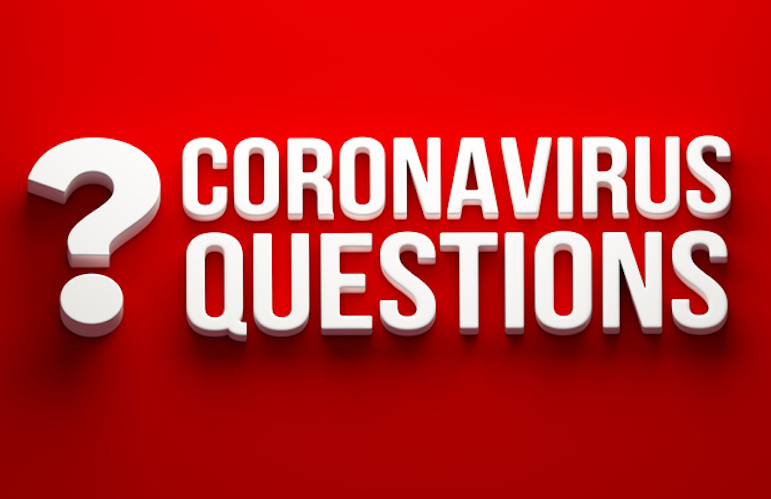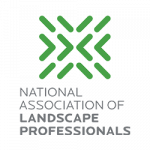
Updated: March 31, 2020
In this time of COVID-19 crisis, can you still be operating your lawn or landscape business? This seemingly simple question has become baffling complex. With many states ordering “shelter in place,” and others telling citizens to “stay at home,” even terminology can be confusing. As of this writing, 32 states have told people to essentially remain home, while another 12 states have orders in parts of the state, either by county or city. (A list of continually updated regions from The New York Times can be found here.) Failure to comply with these orders can in some cases mean fines, mandatory business closure, and even imprisonment. Yet, an “essential business” is exempt. And herein lies the confusion: With differing details in state directives, is lawn care or landscaping considered an “essential business” in your region?
NALP Seeking Clarity
The National Association of Landscape Professionals (NALP) is striving to provide these answers with a just-launched page of State by State COVID-19 Guidance. According to the NALP, “In states that we do not have explicit language exempting the landscape industry, we are continuing to communicate with those officials to provide further evidence of the essential nature of landscape services… This remains a rapidly developing situation and we will update this website as we learn new information.”
 In other words, even NALP is not always getting clear answers, but they are advocating for the industry as an “essential business” and seeking clarification across the U.S. (For NALP’s official statement, click here.)
In other words, even NALP is not always getting clear answers, but they are advocating for the industry as an “essential business” and seeking clarification across the U.S. (For NALP’s official statement, click here.)
For states restricting non-essential businesses, many are following the Department of Homeland Security’s (DHS) Memorandum on Identification of Essential Critical Infrastructure Workers During COVID-19 Response which had made a provision for, “Workers such as plumbers, electricians, exterminators, and other service providers who provide services that are necessary to maintaining the safety, sanitation, and essential operation of residences.” After working with DHS for weeks, on March 28 NALP announced a revision put forth in Guidance on the Essential Critical Infrastructure Workforce: Ensuring Community and National Resilience in COVID-19 Response Version 2.0 that states a broader definition of essential services to include, “Workers such as plumbers, electricians, exterminators, builders, contractors, HVAC Technicians, landscapers, and other service providers who provide services that are necessary to maintaining the safety, sanitation, and essential operation of residences, businesses and buildings such as hospitals, senior living facilities, any temporary construction required to support COVID-19 response.”
According to NALP, this revision “is a huge win for our industry, but note that state and local authorities still have jurisdiction in their areas.” NALP also points out that DHS states, “the list is advisory in nature. It is not, nor should it be considered, a federal directive or standard.”
The DHS revision was a game changer in Wisconsin, where the Wisconsin Landscape Contractors Association (WLCA) had received word on March 24 from Governor Evers Office that “Landscape businesses are not considered essential businesses or operations.” Since Wisconsin follows the DHS Memorandum in its Safer At Home Order, that stance has now changed. A March 29 statement from the WLCA says landscapers are now deemed an “essential business” in Wisconsin.
Because much confusion remains, Andrew Bray, VP of government relations at NALP, as well as state landscaping organizations, are taking on the daunting task of eliciting more exact wording and clear direction from state officials already overburdened by this ever-changing crisis. And in many cases, receiving the results that yes, landscaping is an “essential business.”
For instance, in New Jersey, currently under a “shelter in place” order, The NJ Nursery & Landscape Association (NJNLA) received word on March 22 from the NJ Secretary of Agriculture that landscaping may continue provided the industry follows the social distancing requirements laid out in Executive Order 107. NJNLA were also told that, if this were to change at any point, they would be advised.
Bray said other states including Arizona, Maryland, and Pennsylvania explicitly mention landscaping as a business allowed to operate during this time. Still others, like Illinois, Indiana, North Carolina, and New York, have confirmed landscapers may operate, says Bray, even though the industry was not named specifically in the original order language.
But there are exceptions. In Michigan landscape services are deemed non-essential. According to the Michigan Nursery & Landscape Association (MNLA), Governor Whitmer, in a March 26 press conference, “clearly stated that landscape services are not included as a business necessary to sustain or protect life and ordered us to stop working and stay home. Based on this statement… we are recommending that you cease working until this Executive Order expires on April 13, 2020 at 11:59 PM.” For more details, visit here.
While Washington is yet another state where more clarity is needed, it appears for the most part, landscaping may be deemed non-essential. According to Lisa Fairburn of Living Water Lawn Care in Spokane, WA , their business and others had received official emails stating, “Landscaping is allowed, but only to the extent necessary to prevent imminent damage or spoliation of hardscape or greenery. Routine maintenance is not permitted.”
County Conflicts
In some states, counties or cities are acting independently, further complicating the determination of an “essential business.” For instance, while the state of Florida currently has no shelter in place order, counties like Miami-Dade and Broward have both issued emergency declarations and shuttered non-essential businesses. In both cases, however, “landscape and pool care businesses, including residential landscape and pool care services” are specifically deemed essential. In Texas, where governor Greg Abbott has left shut down measures in the hands of local governments, counties are adopting their own individual “stay at home” directives.
But in cases where the county and state may have conflicting language, who has ultimate authority? “In many cases the states may prevail, but it really depends how the county or city is chartered,” comments Bray. He admits there’s a lot of “conflicting information,” particularly in social networks, and “a lot of states are probably scrambling.”
Types Of Work
Of course, not all landscaping work is necessarily equal. One could argue that snow plowing or lawn mowing are essential, but what about building a patio? This kind of distinction caused a lot of confusion for landscapers in New York last week.
On March 24, the NY State Nursery and Landscape Association (NYSNLA) reported that Nassau and Suffolk counties had said landscapers could perform essential services for property maintenance and safety, including care and maintenance of lawns and plants, including plowing, mowing, and plant care, but could not perform new installations. Though the NYSNLA cautioned, “this is information that we have not yet had confirmed at the state level, but it has been shared publicly by these county governments. It applies statewide, not just to Nassau and Suffolk counties.” CBS news reported the same information and quoted Nassau executive Laura Curran as stating, “We will see more ticks and mosquitoes if things are not kept clean. We don’t want to see vermin.”
Yet state officials then backed away from that idea the very next day, officially releasing a statement by Commissioner Richard A. Ball outlining landscaping activities as essential and exempt, including “The placement and ground maintenance of sod, landscaping plants, flowers, ornamentals, and trees on residential and commercial grounds.”
Seeking Guidance
While NALP is striving to provide “essential business” state updates on its aforementioned page, landscapers can also reach out to their local landscape organization for clarity or their governor’s office. As for applying for a waiver, Bray recommends against it at this point. “It’s flooding an already stressed situation.”
Ultimately, even if you can legally operate in your region, it’s up to the individual firm to assess risk. NJNLA states, “any decision to continue operating is at the discretion of the business owner. Please make your business decision based on what is best for your employee’s, customer’s, and supplier’s health.” Bray echoes that sentiment. “Each company needs to make its own decisions.”
Public perception is also a concern for many landscapers, as expressed on www.expired-link.com. So if you decide to work, carry along a copy of your state’s “essential business” exemptions to allay any conflicts. On its site, NJNLA recommends that NJ landscapers print the exemption information and keep it with crews. The good news is that many landscapers are uniquely positioned to continue working in the great outdoors during this incredibly worrisome time (while many others are laid off or unable to work)—as long as all new safety guidelines are stringently followed. Stay safe out there!
See Turf’s article with tips on COVID-19 Safety Procedures For Landscapers at this link.
Want to talk with fellow lawn care and landscape professionals about COVID-19 issues? Join the discussion in the Business Operations forum at www.expired-link.com.











![[VIDEO] Dickies®: Discover Workwear That’s Anything But Uniform](https://turfmagazine.com/wp-content/uploads/2023/06/1647663814-4b1a2a7742790a9b1e97a3b963477850192e1d6a9dfba9b07214a77bae25d6e3-d-218x150.jpg)






























![[VIDEO] Dickies®: Discover Workwear That’s Anything But Uniform](https://turfmagazine.com/wp-content/uploads/2023/06/1647663814-4b1a2a7742790a9b1e97a3b963477850192e1d6a9dfba9b07214a77bae25d6e3-d-324x160.jpg)